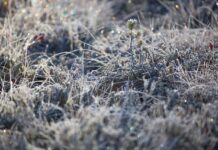We have experienced two days of snow here, in northeast Ohio. But at least we did not get as much as some parts of Pennsylvania and New York. Some places are dealing with as much as two feet or more of snow.
Managing feeding, in those conditions, must be extremely stressful on both animals and their caretakers. Winter not only brings snow, but also brings lower temperatures. Livestock, such as cattle and sheep, need increased nutrients, above and beyond their normal body requirements, to stay warm during winter.
Forage quality
Livestock owners should think of forage first during winter feeding. Forage must be high quality, with adequate protein, vitamins and minerals, to meet the animals’ increased needs. If you do not know the quality values of your forage supply, you should get it tested.
If your forages are low in protein, you will need to provide a protein supplement or some high quality alfalfa hay. In cold spells, livestock require more forage to maintain body heat. Their appetites increase, so feed them as much forage as they will clean up.
Timing and placement
If you feed twice a day, feed the biggest portion of forage in the evening so they have food during the night, when temperatures are coldest. For cattle and sheep, this will keep forage in the rumen all night and help them keep producing body heat during the digestion process.
When winter feeding, place hay on grass or snow-covered areas or in feeders. But make sure to choose a new clean spot to feed in each day. Livestock will not eat muddy hay or hay that has been used for bedding. These muddy locations are great places for young animals to pick up diseases. Moving feeding areas each day will keep livestock healthier.
Water
Livestock need water, so make sure water sources do not freeze in winter. Sheep grazing winter pasture will eat some snow, if it is not crusted, but cattle usually need more water than sheep when eating hay. Livestock will not eat enough and will start to lose weight in the winter if they do not consume enough water for the digestion process.
Impact
Adjusting winter feeding for livestock does make a difference. It’s the difference between keeping livestock healthy and happy, and letting them be cold and lose weight. It is especially important for pregnant animals, so they can have a healthy gestation and give birth to strong, healthy offspring.
Winter feeding can have a big effect on your livestock enterprise budget. How you manage winter feeding determines whether you make a profit or end up with a big loss. So take extra care of those animals during the cold, ice, snow, mud and rain of winter.













Winter is hard for animals ,straw or forage can’t meet their demands ,it’s better to use compound feed for animals ,it will help them spend winter